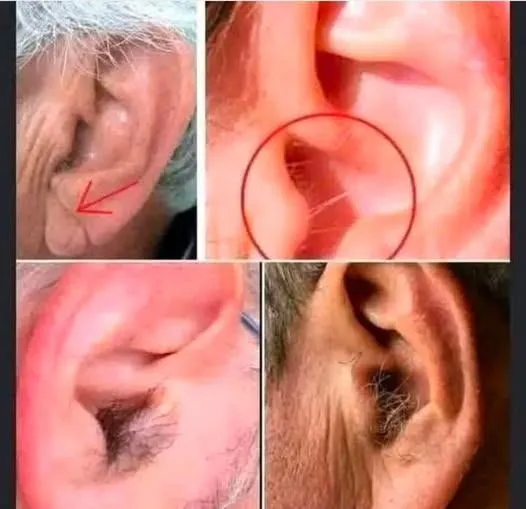Maintaining proper hygiene and care for your body’s most sensitive areas is an important part of everyday wellness. The genital area, in both men and women, contains delicate skin that is more prone to irritation, dryness, and discomfort compared to other areas of the body. Fortunately, there are gentle, effective, and medically recommended ways to care for genital skin that promote comfort and prevent irritation or infection.
In this article, we’ll explore expert-backed advice on how to safely wash, protect, and maintain healthy skin in the genital area, using techniques and products recommended by leading healthcare providers.
Why Genital Skin Needs Special Attention
The skin in the genital region is more sensitive due to its thinner structure, higher moisture levels, and the presence of sweat glands and mucosal tissue. According to the British Association of Dermatologists (BAD), this area is more likely to become irritated when exposed to harsh soaps, synthetic materials, and heat or friction.
Maintaining a balanced skincare routine that focuses on gentle cleansing, moisture retention, and breathability is essential.
1. Use Plain Water or Emollients for Washing
When it comes to washing the genital area, less is more. Most dermatologists advise using plain, warm water to clean external genital skin. Harsh soaps and scented body washes can strip the natural oils from the skin and upset the natural pH balance, which may lead to irritation or dryness.
For additional comfort, experts recommend using emollients—gentle, moisturizing products that help maintain skin hydration. Products like aqueous cream, Diprobase, and Doublebase can be used in place of soap. These are widely available at pharmacies and supermarkets and are generally cost-effective.
How to Use Emollients:
- Apply a small amount to the external genital area before bathing or showering.
- Rinse off thoroughly with lukewarm water.
- You can also apply a light layer at night before bed if your skin feels dry or irritated.
According to NHS guidance, emollients are safe for daily use and are commonly prescribed for people with eczema, dermatitis, or sensitive skin (NHS UK).
:quality(85):upscale()/2021/09/22/735/n/29590734/751efeba614b5c15157c01.54207009_.jpg)
2. Let the Area Breathe: Airflow Matters
Your skin benefits from exposure to fresh air—even in the genital region. Wearing tight or non-breathable clothing all day can trap moisture, increase heat, and contribute to skin irritation, particularly during hot or humid seasons.
When at home, especially in the evenings or during sleep, consider wearing loose-fitting cotton pyjama bottoms or going without underwear (when appropriate and hygienic to do so). This allows air to circulate, helping to reduce dampness and potential bacterial buildup.
This practice is recommended by women’s health experts and dermatologists as part of a holistic approach to skin ventilation and moisture control, particularly if you experience recurring skin discomfort in that region.
3. Choose Breathable Underwear Materials
Your choice of underwear can significantly impact your genital skin health. Cotton is widely recommended by dermatologists and gynecologists because it is breathable, absorbent, and less likely to cause irritation.
Tips for Choosing the Right Underwear:
- Look for 100% cotton or underwear with a cotton gusset (the panel that touches the most sensitive areas).
- Avoid underwear made from synthetic fabrics such as polyester, nylon, or spandex for extended wear.
- Change underwear daily, or more often if you sweat or experience moisture buildup.
Additionally, it’s best to wash underwear with non-biological laundry detergents—those without enzymes or harsh chemicals—especially if you have sensitive skin. Avoid fabric softeners and strong fragrances, which can remain in the fabric and irritate the skin.
These recommendations are supported by organizations such as the American Academy of Dermatology (AAD) and Cleveland Clinic (Cleveland Clinic).

4. Avoid Harsh Soaps, Fragrances, and Douching
Fragranced soaps, sprays, wipes, and douching products may seem like they enhance hygiene, but they can disrupt the skin’s natural microbiome and cause irritation or even infections.
For external genital care, avoid:
- Scented body washes or soaps
- Talcum powders
- Intimate sprays or deodorants
- Feminine washes with fragrance or antibacterial agents
- Internal douching (not recommended by health experts)
According to the American College of Obstetricians and Gynecologists (ACOG), douching can upset the natural balance of bacteria and pH levels, increasing the risk of bacterial vaginosis and yeast infections (ACOG.org).

5. Address Skin Changes Promptly
If you notice any of the following symptoms, it’s best to consult with a healthcare provider:
- Persistent itching or burning
- Redness or rashes that do not improve with gentle care
- Cracks or sores
- Unusual discharge or odor
- Lumps or growths
These could indicate underlying dermatological or gynecological conditions that require medical evaluation. Regular self-checks and prompt attention to symptoms ensure early diagnosis and treatment when needed.

6. Additional Tips for Daily Comfort
- After using the toilet, gently pat dry with soft tissue. Avoid vigorous wiping.
- Stay hydrated to support overall skin health.
- Change out of sweaty clothes promptly after exercise.
- If using menstrual products, opt for unscented, hypoallergenic options.
Good genital skincare doesn’t require complicated routines—just consistency, gentle care, and awareness of your body’s needs.
Final Thoughts
Caring for your genital skin is a vital but often overlooked part of personal hygiene. By following expert-backed practices such as using gentle emollients, wearing breathable fabrics, and avoiding harsh chemicals, you can help maintain healthy skin and avoid discomfort.
These everyday habits contribute to your overall comfort, confidence, and wellbeing, and should be treated as an essential part of your skincare routine—just like washing your face or moisturizing your hands.
If you're ever unsure about a skin reaction or ongoing irritation, don’t hesitate to speak with a healthcare provider. Your comfort and health are worth the attention.
Verified Medical and Health Sources:
- NHS UK – Emollients and Sensitive Skin Care
- Cleveland Clinic – Sensitive Skin and Irritation Prevention
- American Academy of Dermatology – Skincare Tips
- American College of Obstetricians and Gynecologists – Intimate Care Guidelines
- British Association of Dermatologists

-1745999384-q80.webp)

